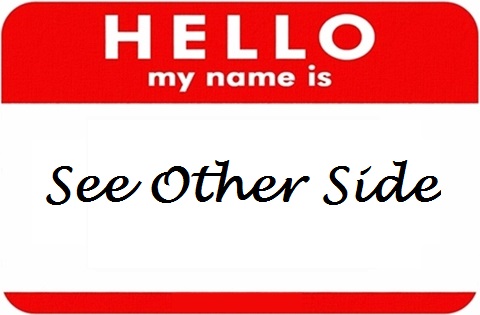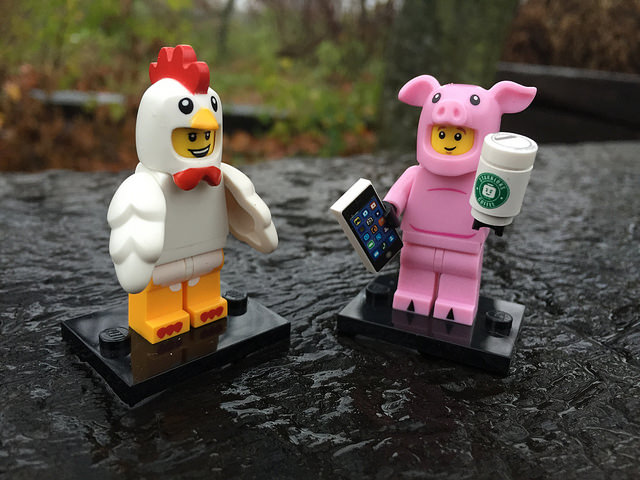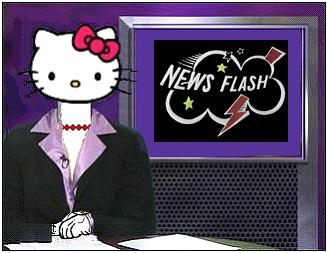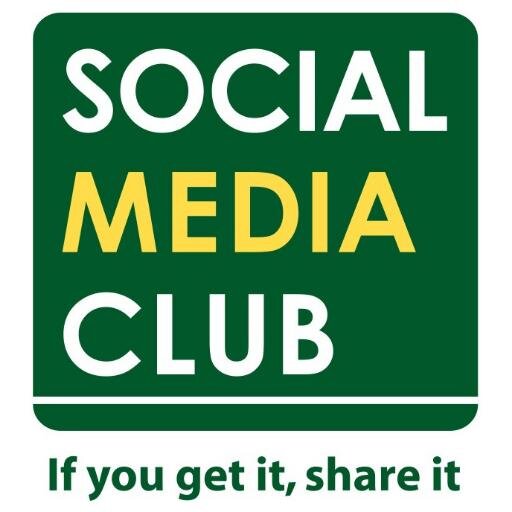How About Addressing the Real Problems with Conferences?
 Most of the tips for conferences in this post by Marcus Sheridan make sense; all are, at worst, arguable. They are also mostly small fixes aimed at making the speakers’ lives better. I guess that makes sense, as the writer is a professional speaker. As a sometime conference attendee, I care much less about any of these complaints, such as name badges being only one-sided, and conferences not using music between sessions (Music? Noise pollution! You kids and your rock and roll!).
Most of the tips for conferences in this post by Marcus Sheridan make sense; all are, at worst, arguable. They are also mostly small fixes aimed at making the speakers’ lives better. I guess that makes sense, as the writer is a professional speaker. As a sometime conference attendee, I care much less about any of these complaints, such as name badges being only one-sided, and conferences not using music between sessions (Music? Noise pollution! You kids and your rock and roll!).
How about conferences addressing what makes them dull, repetitive and/or a waste of time and money? Hiring the same damn speakers to say the same damn things at shows that are too damn similar is a constant damn problem. If you are putting on a show, be bold: forget the professional speakers unless you absolutely need that name to fill seats. Don’t fall into the trap that you have to have a celebrity that is totally unrelated to your show’s topic, unless it’s a reward and a “topic break” so attendees can relax (don’t lie by implying that Amy Schumer/Trevor Noah/Aziz Ansari/whoever is relevant to my 2017 marketing planning- but do tell me they might be fun to see).
Find people who are doing something: case studies are awesome. People who are working at companies and facing real problems often have something to say. And for most of those kinds of folks you don’t have to pay a speaking fee for some white dude who has been delivering the same speech for six years. I will admit that I may be an outlier as I spend most keynotes elsewhere getting work done rather than playing front-row fanboy, but this is something I advocated for in my time on the board of the Boston PRSA chapter, and was lucky that the people running our programs largely agreed.
Oh- also stay away from agency wankers and consultants unless they have something original to present. We are all narcissistic jerks.
That said, I look forward to my two-sided name badge at my next conference, even if one side will be obscured by lunch tickets. Rock on.
Don’t Turn Up Your Nose at Networking Because it’s not “Billable” (Chapter 435)

My old colleague Ed Harrison is the latest to weigh in on the value of taking those “brain-picking” coffee meetings. I know I have ranted on the topic before, but I sternly furrow my brow when consultants rail against people who want to have coffee (or whatever) with them for advice, accusing them of stealing free whatever it is they charge money for. Sure, there are limits; while there are leeches out there who don’t give back (or forward, as it were), those people should be easy to spot. There is never a good reason for turning down networking, even if you are dispensing advice to someone that can’t help you right now. How many people helped you in the past? How many coffees did you ask for? Did you pay them back with business? Of course you didn’t. Time to repay, time to mentor, and time to network, as you never know when and how it will come back to you. Plus, free coffee. There’s your revenue right there.
I’m glad to see more posts on this side of the issue and fewer whining about people asking for “Free advice.” Here’s my free advice: Google “pick your brain for free” and when you need to pick someone’s brain, avoid the type of people whose articles come up. Done.
Taking Buzzfeed Seriously

Patience, as this bit includes some semi-old news; last month, Buzzfeed announced it was separating into news and entertainment divisions. The article I found announcing the split focused on the business reasons for doing so- but as a consumer, I thought it was a great way to try to shake the image of Buzzfeed. The site’s name itself has become shorthand for listicles, cat videos and other stupid time-wasters (read: awesome content- come on, cats!). But for sometime Buzzfeed has been producing more serious-minded news content. Will this make people pay attention? Were they already paying attention and I am a shallow moron to miss it? CNN paid attention, paying the ultimate compliment by poaching four of their news staffers (there, a newer story to reference- and now we are current again). Heck, Esquire’s politics page is paying tribute to their keen reportage as well.
The next step in building credibility is for Buzzfeed to turn from poach-ee to poach-er. I will be sure to find out a month or more after it happens.
Social Media Club Turns 10
 Whither Social Media Club? Ten years ago, the outfit was founded by Chris Heuer and Kristie Wells, and it changed a lot of professional lives as it spread from San Francisco to many other cities (including Boston in 2007). I was happy and lucky to be involved in some capacity from the beginning (thanks to my then-colleague Todd Van Hoosear). SMC got a lot of people together, and while activities in different cities may have waned over time as people have moved on professionally and geographically, that does not lute its impact. Many of us have joined other established organizations (like the PRSA as mentioned above, or AMA), as the PR, marketing and other professions embraced social as part of their fabric rather than as a separate practice. Read Kristie’s ten-year post and remember that the SMC continues…
Whither Social Media Club? Ten years ago, the outfit was founded by Chris Heuer and Kristie Wells, and it changed a lot of professional lives as it spread from San Francisco to many other cities (including Boston in 2007). I was happy and lucky to be involved in some capacity from the beginning (thanks to my then-colleague Todd Van Hoosear). SMC got a lot of people together, and while activities in different cities may have waned over time as people have moved on professionally and geographically, that does not lute its impact. Many of us have joined other established organizations (like the PRSA as mentioned above, or AMA), as the PR, marketing and other professions embraced social as part of their fabric rather than as a separate practice. Read Kristie’s ten-year post and remember that the SMC continues…
My Favorite Tweet by Me this Month
If you’re going to Tweet about narcissism, you should promote it on your blog too, I always say.
There is only so much narcissistic online ranting I can take when it's not about me.
— Doug Haslam (@DougH) September 26, 2016